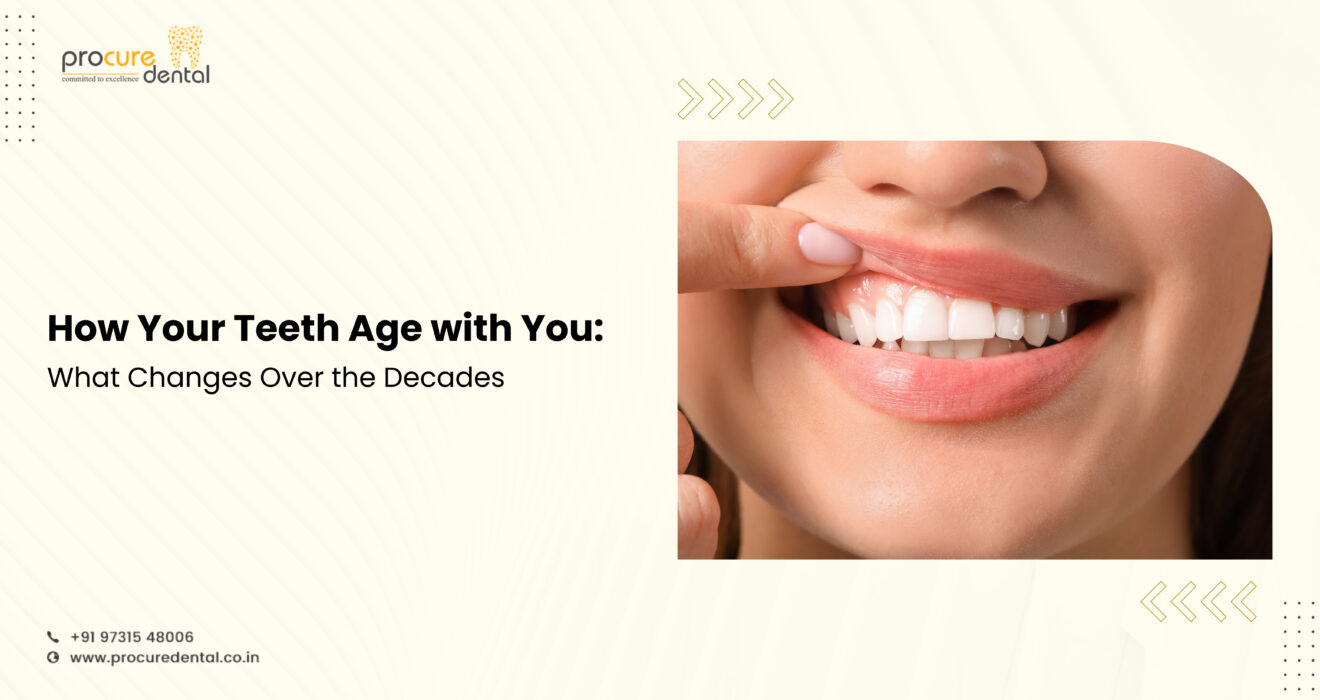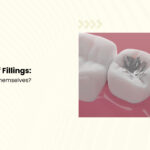How Your Teeth Evolve with Age – And How to Keep Them Strong
Aging affects every part of your body, including your teeth. Over the years, they endure wear and tear from the foods you eat, your daily routines, and natural aging processes. While some changes are unavoidable, taking the right steps can help you maintain a strong and healthy smile for a lifetime.
So, what happens to your teeth as you get older? Let’s explore the natural changes that come with age and the best ways to keep your teeth in top condition at any stage of life.
How Your Teeth Change Over Time
Your 20s & 30s: Building the Foundation
At this stage, your teeth are at their peak strength, but they still require care to stay that way. The choices you make now will influence your oral health in the future.
- Your enamel is still thick and durable, but frequent consumption of coffee, tea, and red wine can cause gradual discoloration.
- Long hours at work and high stress levels may lead to jaw clenching or teeth grinding, wearing down your enamel over time.
- Wisdom teeth may still be emerging, potentially causing discomfort or crowding.
How to Maintain Strong Teeth:
✔ Get regular dental cleanings to keep plaque and stains under control.
✔ If you grind your teeth, consider a custom night guard to protect them.
✔ Limit foods and drinks that stain your enamel to keep your teeth bright.
Your 40s & 50s: Subtle Yet Significant Changes
As you move into your 40s and 50s, natural aging effects on your teeth become more noticeable.
- Enamel gradually thins, making your teeth more sensitive to temperature changes.
- Gum recession can expose more of your tooth roots, increasing the risk of cavities and discomfort.
- Teeth may shift slightly, even if you had braces in the past.
- Saliva production may slow down, leading to a drier mouth, which can increase the chances of decay.
How to Keep Your Teeth in Good Shape:
✔ Use fluoride toothpaste to help reinforce enamel.
✔ Maintain routine dental visits to keep an eye on gum health.
✔ Drink plenty of water to combat dry mouth and support saliva production.
Your 60s & Beyond: Extra Care Needed
By your 60s and later, your teeth have been through decades of chewing, biting, and general use. However, with proper care, they can remain strong for many more years.
- Saliva production continues to decrease, which can lead to a greater risk of cavities and bad breath.
- Bone density in the jaw may decline, which can contribute to loose teeth or an increased need for dentures.
- Older dental work, such as fillings and crowns, may begin to wear out and need replacing.
- The risk of gum disease rises, and if left untreated, it can result in tooth loss.
How to Preserve Your Oral Health:
✔ Consider an antibacterial mouthwash to maintain gum health.
✔ Stay hydrated and reduce alcohol and caffeine intake, as both contribute to dry mouth.
✔ Visit your dentist regularly, especially if you have past dental work that needs monitoring.
Misconceptions About Aging and Oral Health
Many people believe that tooth loss is an inevitable part of aging, but that’s not true. With the right habits and preventive care, you can maintain your natural teeth for life. Gum disease and tooth decay, rather than aging itself, are the main culprits behind tooth loss.
Another misconception is that brushing harder cleans your teeth more effectively. In reality, using excessive force can erode enamel and cause gum recession. A soft-bristled toothbrush with gentle strokes is much better for maintaining oral health.
Finally, the absence of pain doesn’t necessarily mean your teeth are in perfect condition. Many dental problems, like cavities and gum disease, can develop without any noticeable discomfort in their early stages. This is why regular dental checkups are essential—they catch problems before they become serious.
Tips to Maintain Strong Teeth at Any Age
1. Use fluoride toothpaste – Helps reinforce enamel and prevents decay.
2. Floss daily – Removes plaque and keeps gums in good condition.
3. Drink enough water – Keeps your mouth moist and washes away food particles.
4’ Eat a balanced diet – Calcium and vitamin D help maintain strong teeth and bones.
5. Cut back on sugar and acidic foods – These contribute to enamel erosion and cavities.
6. Replace aging dental work – Old fillings and crowns should be checked and replaced when necessary.
7. Visit your dentist regularly – Prevention is always easier (and less expensive) than treatment.
Final Thoughts: Your Smile Can Last a Lifetime
Growing older doesn’t have to mean losing your teeth. With good oral hygiene and healthy habits, your teeth can stay strong well into your later years.
By paying attention to changes in your mouth, practicing good dental care, and keeping up with professional checkups, you can enjoy a healthy, confident smile at any age. A little effort today will go a long way in keeping your teeth in top shape for years to come.



